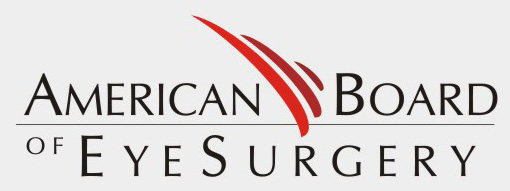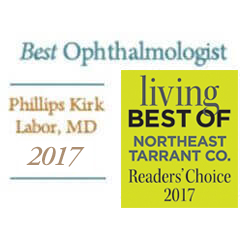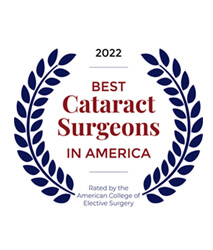It’s common knowledge that an eye surgeon, or any physician, must be licensed in order to practice medicine in the U.S. Optometrists, although they don’t practice medicine, must also be licensed. A common, further step for eye surgeons is to become Board Certified. This is voluntary, yet it validates for patients that the doctor is truly qualified in his or her specialty.
The American Board of Ophthalmology (ABO) administers what is considered standard certification for ophthalmologists with a series of strict requirements. If accepted, they must complete months of study, pass rigorous written and oral exams, and be re-evaluated every 10 years.
 Dr. Labor has held this board certification for nearly 30 years. Recently, he earned a much higher level of certification from the American Board of Eye Surgery (ABES). This places him among a smaller, esteemed group of U.S. eye surgeons who have demonstrated the highest-level quality care. Dr. Labor is now one of a select few eye surgeons to achieve this distinction. Compared to eye surgeons in Dallas and across the U.S., this validates his unique level of expertise, skills, judgment, integrity, and doctor-to-patient care.
Dr. Labor has held this board certification for nearly 30 years. Recently, he earned a much higher level of certification from the American Board of Eye Surgery (ABES). This places him among a smaller, esteemed group of U.S. eye surgeons who have demonstrated the highest-level quality care. Dr. Labor is now one of a select few eye surgeons to achieve this distinction. Compared to eye surgeons in Dallas and across the U.S., this validates his unique level of expertise, skills, judgment, integrity, and doctor-to-patient care.
ABO certification, in and of itself, follows an extensive, tireless, time-consuming process. The more extensive ABES certification takes this farther, requiring Dr. Labor to complete a more in-depth process of study, testing, and evaluation by his peers. “My decision to earn ABES certification wasn’t taken lightly,” Dr. Labor said. “The standards ABES sets are very high, and I knew I was being compared to a select group of amazing eye surgeons. But that was what drew me to this. To earn this distinction is something I needed to do for myself. By doing that, it ultimately benefits my patients, which makes this most rewarding.”
The American Board of Eye Surgery was founded to promote the highest quality ophthalmic surgical care possible through certification based on a specific set of standards. This not only emphasizes the quality of surgery, but as ABES states: “The establishment of appropriate certification programs can assure that recognition is given to the quality, as well as the cost, of ophthalmic surgical care.”










